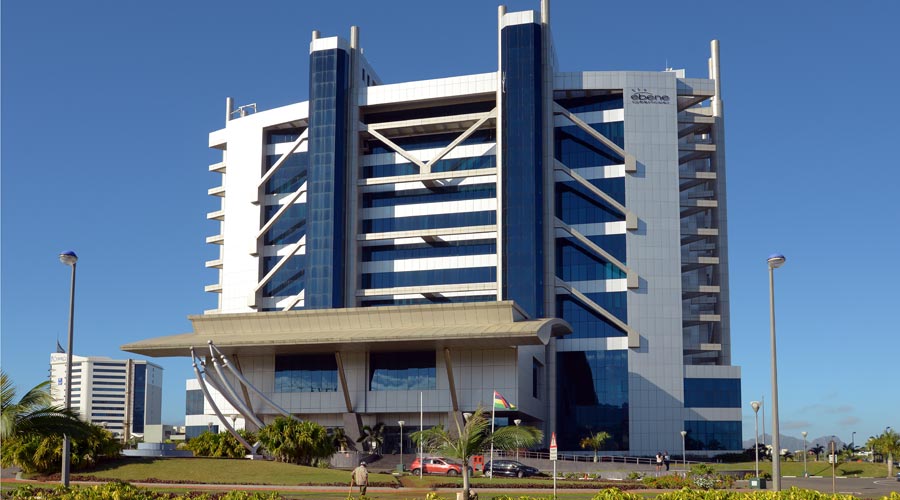A Global Business Destination
Exquisitely situated at the crossways between Africa and Asia and conveniently located between the time zones of Europe and the Americas, Mauritius is an interesting platform because it offers the right mix of elements conducive to business.
It is a stable democracy governed by the rule of law with a comprehensive legal framework offering protection for investments and profits along with interesting tax benefits for foreign investors and investment possibilities. Other factors include the availability of an educated and skilled personnel fluent in both English and French.
Taxation regimes for business
The standard corporate tax is 15%. For companies holding the Category 1 Global Business Licence (GBC 1), the effective tax rate is 3% as they benefit from a deemed tax credit of 80% on foreign sourced income. Under the Double Taxation Avoidance Agreements, GBC 1 companies may benefit from further tax reduction.
The Types of entities in the Mauritian jurisdiction:
1. Global Business Companies
Global Business Companies are regulated by the Mauritius Financial Services Commission. They are of two types: the Category 1 Global Business Company (GBC 1) and the Category 2 Global Business Company (GBC 2).
The GBC 1 is attributed to an entity that wishes to primarily benefit from a tax credit of 80%. It may also allow its holder to take advantage of tax reduction under the Double Taxation Agreements Mauritius has with various countries.
The GBC 2 is tax-exempt and is typically used where no tax treaty benefits are sought.
2. Domestic Companies
A domestic company is registered with the Registrar of Companies and governed under the Companies Act 2001. It can be set up for various activities such as trading and consulting services. The activities can be conducted with both residents of Mauritius and non-residents of Mauritius.
3. Trust
A trust is a legal arrangement where the settlor transfers assets to a third party, known as the Trustee, who will administer and manage the trust for the benefit of person(s) chosen by the settlor known as the beneficiaries and whom will benefit from the trust. The latter will be managed according to the provisions in the Declaration of the Trust.
A trust in Mauritius exists through a deed of trust where property is vested into a trust for the benefit of the beneficiaries or for specific purposes. When the trust is qualified as a non-Mauritius resident Trust, it will not suffer any income tax in Mauritius.
4. Private trust companies
The Private Trust Company (PTC) in its simplest form is a company formed for the specific purpose of acting as trustee of a single trust, or a group of related trust which holds assets for the benefit of the settlor’s family or different branches of his family as opposed to the public in general. The PTC is not allowed to provide trust business services to the public and as such is not licensed as a Qualified Trustee.
The settlor (or his family) can retain a greater degree of control over their trust affairs and its management.
5. Limited Partnership
A limited partnership is a blend of partnership with a private limited company. It gives owners the flexibility of operating as a partnership while having a separate legal entity. The limited partnership shall consist of at least one general partner and one limited one.
A Mauritius LP may hold a Category 1 Global Business Licence and may seek authorisation from the FSC to operate as a Collective Investment Scheme under the Securities Act 2005 and the Securities (Collective Investment Schemes and Closed-End Funds) Regulations 2008.
6. Foundation
A foundation is a legal entity operating as its own organisation through a council but without members (shareholders). It has similar functions as those of a trust but benefits from an administrative suppleness of a Company.
A foundation is established by a Founder who donates assets with which to achieve the objects of the foundation. The Founder’s intentions for the Foundation are set out in a charter to determine how the assets are to be managed, for what purpose and for whose benefit.
Foundations are usually used for asset protection, inheritance planning, wealth management, charitable purposes among others.
7. Funds (CIS, PCC)
Funds are incorporated under the Companies Act 2001 of Mauritius and are licensed and regulated by the Financial Services Commission under the provisions of the Financial Services Act 2007 and Securities Act 2005.
A collective Investment Scheme (CIS) is one which may be constituted as a company, trust, limited partnership or any other legal entity and whose exclusive purpose is the collective investment of funds in a portfolio of securities or financial assets, real property or non-financial assets.
An open-ended or closed-ended CIS can have multiple classes of shares and may as well be structured as Protected Cell Companies (PCC) where assets and liabilities of each cell are segregated from each other.

Trading in financial products usually involves a risk element. As a general rule, prior to trading in any financial product the client should understand the products and the underlying risks associated with them.
Please be advised that while we endeavour to assist our clients in their best possible interest, we all remain economic agents of the global economy whereby the market regulates itself. This market regulation mechanism remains independent and unpredictable, it may play in favour of clients and their respective positions, or against them. These risks remain similar for all organizations functioning within the sphere of open and market regulated economies.
Copyright © 2017 Croesus Treasury Management Ltd . All Rights Reserved.



